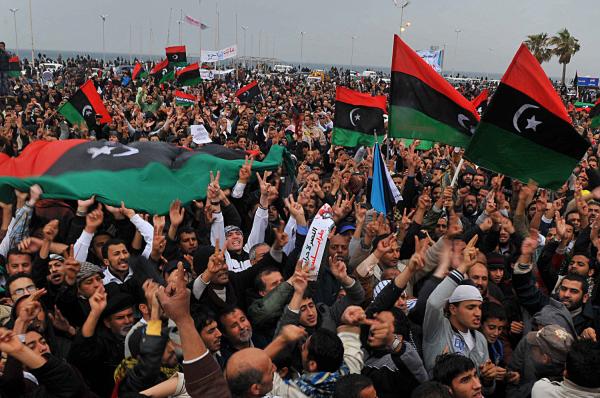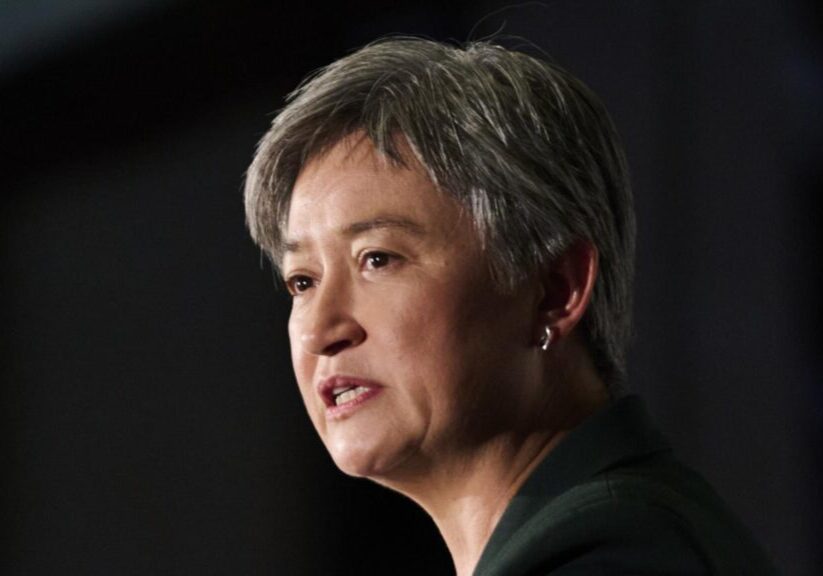IN THE MEDIA
Hopes and dreams for Israel in the post-Gaddafi era
Oct 28, 2011 | Allon Lee

Allon Lee
Australian Jewish News – October 28, 2011
After four decades of tyranny, Colonel Gaddafi, the Clown Prince of brutal dictators, is dead.
Gaddafi’s crimes were many and well documented.
At this time we must reflect on his victims and note that at the height of his brutality some on the left and right in Australia supported him.
His passing, however, doesn’t mean we should be unconcerned with what comes next in Libya.
The National Transitional Council (NTC) currently running Libya has laid down a marker for the likely future direction of the next government and its shading is distinctly Islamist.
On Monday, Libya’s de facto president Mustafa Abdul-Jalil said Sharia will be the country’s “basic source” for its legal system and any law contradicting Sharia will be nullified. Abdul-Jalil also indicated that men would be entitled to exercise their Islamic right to practice polygamy.
While it is naïve to expect a fully-fledged Western style democracy in the absence of such a tradition, the West should encourage the NTC to respect the individual human rights of both men and women.
Libya faces the same challenge as Egypt and Tunisia – the absence of a regional model of government that successfully marries Islam and a government run according to the doctrine of the “rule of law”.
Unfortunately, even in Turkey, hitherto the favoured model, journalists and political opponents who question the ruling government quickly end up in court as the country marches towards Islamism through the ballot box.
In terms of the wider strategic outlook, will Libya remain aloof from the regional power struggle between Sunni and Shi’ite Islam or will Iran and al-Qaeda linked groups lure it into self-destructive follies?
The biggest danger for the rest of the world lies in a Libyan leadership flush with petrodollars and eager to encourage and support Islamist terrorism.
What a post-Gaddafi Libya means for Israel remains unclear.
During the Libyan rebellion, there were numerous reports of weapons ending up in the hands of Hamas in Gaza. It is unclear who was selling the arms.
NTC spokesperson Ahmad Shabani was interviewed by Israeli newspaper Haaretz in August and was circumspect about official relations but did not rule them out.
Even if relations are not established, hopefully a new Libyan government will refuse to provide aid to Hamas, Hezbollah, and the Popular Resistance Committees, won’t use Israel as a scapegoat when it faces inevitable difficulties and will resist regional grandstanding à la Turkey’s PM Recep Erdogan.
The biggest danger for Israel would be a radical Islamist government in Libya linking up with other Islamist regimes.
But if there is an indication of the difficulties Israel and Jews might expect from a free and democratic Libya, David Gerbi’s experience is a cautionary tale.
In 1948, Libya was home to a Jewish community dating back 2,000 plus years. Between 1949-51 antisemitism forced 30,000 to flee to Israel. The remaining 8,000 were expelled after the Six Day War, including Gerbi’s family who resettled in Italy.
A psychoanalyst, Gerbi returned earlier this year to assist the revolution and after volunteering at the Benghazi Psychiatric Hospital joined the rebels. When Tripoli fell, Gerbi was keen to reopen and restore Tripoli’s main synagogue, which had been abandoned for four decades.
Gerbi said he had received the backing of a local Muslim cleric and NTC officials but unfortunately some in the new Libya had other ideas.
Two weeks ago, on the eve of Yom Kippur, hundreds of protesters demonstrated outside Gerbi’s hotel carrying placards with slogans that included “There is no place for the Jews in Libya,” and “We don’t have a place for Zionism.”
Government officials warned the protesters off and protected Gerbi but advised him to return to Italy.
While we should all hope for the best outcome in Libya, we should not delude ourselves that the future will necessarily be to our liking. Then again, no one would have predicted 12 months ago that Gaddafi would be history.
Allon Lee is a policy analyst with the Australia/Israel & Jewish Affairs Council.
Tags: Israel











